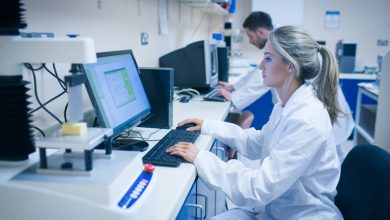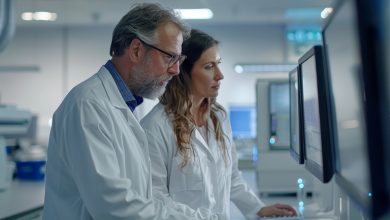NOVAS TECNOLOGIAS
Robôs podem diminuir o uso de defensivos no futuro
Robôs podem diminuir o uso de defensivos no futuro
Miniature robot farmers may be the answer to concerns over chemical use on farms and cutting down on food waste, as well as easing labour shortages, academic farming experts have said.
The drawback is that the machines in question, while developed in laboratories to an advanced stage, are not yet commercially available in the UK. In an optimistic scenario, they could become available in as little as three years, but that would be likely to take large investment and a high degree of entrepreneurialism in the private sector, the experts said on Monday.
Robots set to work in the fields would be able to target pesticides to the plants that need them, in contrast to current practices, dubbed “spray and pray”, which waste 95% to 99% of pesticides and herbicides because they are blanketed across entire fields. Most of this is wasted, but it promotes resistance among pests and weeds, rendering the harsh chemicals ineffective and encouraging farmers to use more. Some pesticides used in this way are also harmful to pollinators, such as bees, and their blanket use has been banned. “Farmers have been heavily reliant for decades on the heavy use of pesticides. Some spraying is very desperate,” said Toby Bruce, professor of insect chemical ecology at Keele University. “Farmers are spraying [chemicals] to which there is resistance. They will not be killing pests as the pests have evolved resistance. They will be killing other insects [such as pollinators].”
If instead such products were used in tiny quantities and directed by robots so that 100% of the pesticide was going straight to the plant needed, then it might be possible to resume the use of banned or restricted pesticides, said Prof Simon Blackmore, head of robotic agriculture at Harper Adams University. Such targeted use would prevent pests from taking a hold on crops, but would be so small it would cause minimal harm to bees, and be less likely to give rise to resistance.
Advertisement
Robots would also be able to detect when fruit and vegetables were becoming malformed, which gives them a lower market value, and when they were too small to be harvested, allowing the harvesting to wait until they are ready. This would reduce food waste, said Blackmore.
Robots have the additional advantage that they could, if they become available soon, ease the pain of Brexit already being felt by some farmers, who are concerned about shortages of cheap imported labour needed to bring in their crops from the field.
But Blackmore and Ji Zhou, a project leader at the Earlham Institute, noted that while lab development of such technology is now at an advanced stage, more will be needed to bring it to market. Many farm technology companies are wedded to the existing model of large vehicles and blanket spraying, and fear the destruction of their business model from more targeted and higher-tech approaches.
“I think the innovation will come from start-ups,” said Blackmore. “We need to see more start-ups in this field.”
Bruce added that a complementary approach in reducing pesticide use was for chemicals companies and farmers to work with biotech experts to use already available technology such as pheromone traps, which capture pests without using pesticides and give an indication of whether pests are present and in quantities that require spraying.
He said experts were also increasingly using plants’ own genetic qualities to repel pests, citing the example of the orange wheat blossom midge, a pest to which some strains of wheat naturally developed their own defences. Those strains are now incorporated into 60% of the UK’s wheat crop, reducing the need for pesticides.
The Guardian, 14/11/2017




